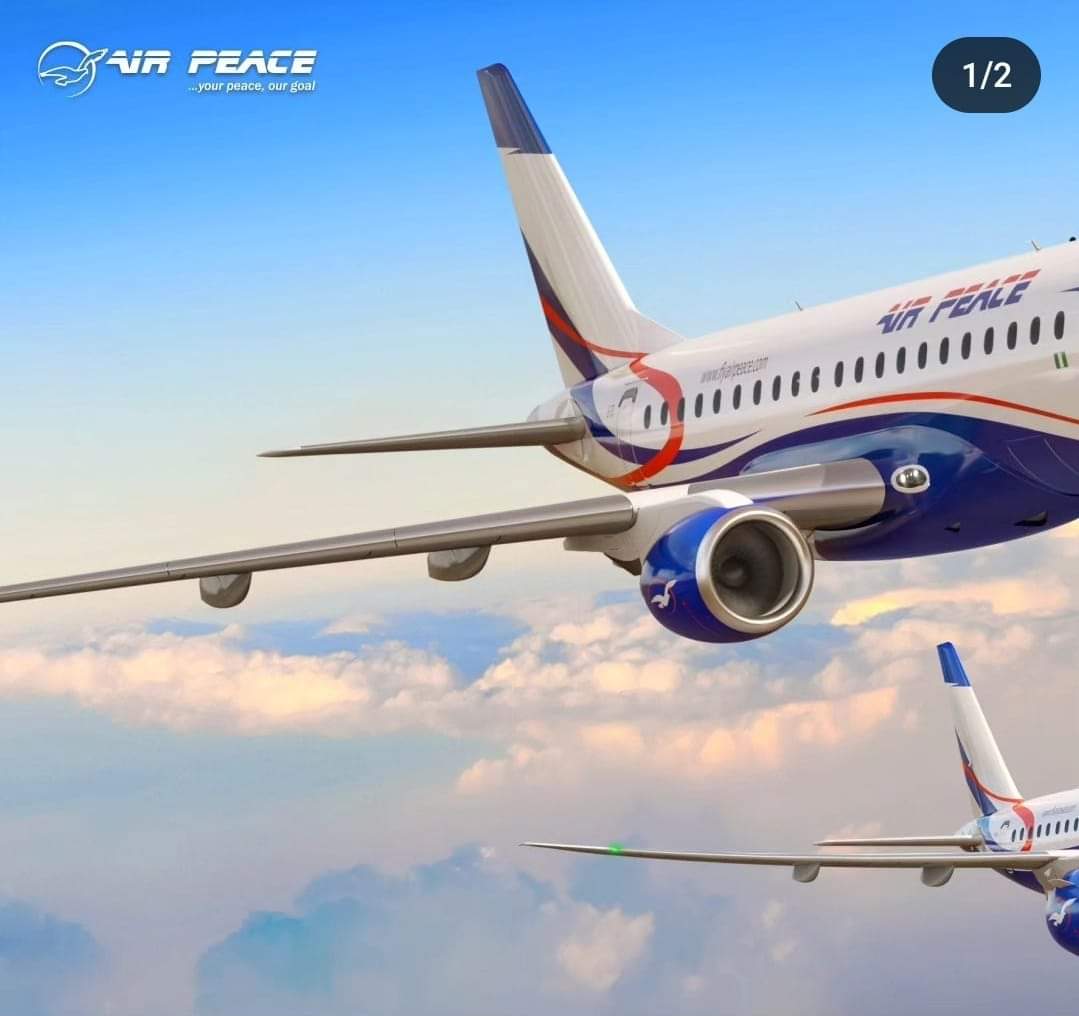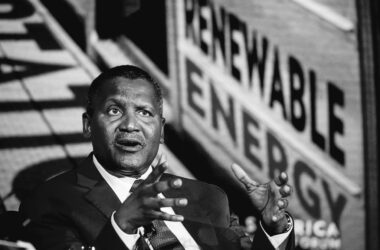When they gathered in the halls of the Murtala Muhammed International Airport in Lagos a few days ago to roll out the drums and clink glasses in celebration of the inaugural flight of foremost Nigerian airliner, Air Peace, to London, the UK capital, little could Allen Onyema, the airline’s Chief Executive Officer, and the dignitaries that joined him on that occasion, have imagined that they were about to trigger a price war between Air Peace and its foreign competitors along the lucrative and much-traveled Lagos-to-London route.
This price war, a fallout of Air Peace’s decision to substantially slash air fares for the various categories of seating on its carriers, has seen its foreign counterparts carry out an even more drastic reduction in their respective fares, reportedly from as high as between N15m and N17m for the various seat categories, to just over a million at most, or even the hundreds of thousands of naira. At the last count, in fact, unconfirmed reports say that one such airline was now offering flights to London for as little as $100 (ie around N123,000!)
The decision by Air Peace was made out of its desire to offer Nigerians a fairer deal in the face of a system that over the years has fleeced them of humongous amounts of money just to make a 6-hour flight to (or from) the British capital. Its move was motivated by the need to offer Nigerians a viable alternative to a situation that had, frankly, become oppressive – so oppressive that a number of Nigerians have had to resort to inconvenient and cumbersome measures just to cut the cost of traveling to the UK. Nigerians have been known to travel to neighbouring W/African countries such as Ghana, Togo, etc where fares for London-bound flights are (inexplicably) cheaper – or even to faraway South Africa, Morocco and Egypt for that purpose.
More importantly, the move was aimed at bringing about a seismic shift in both air travel accessibility and economic dynamics, and to create an environment where healthy competition would spur innovation on the part of all players, plus a greater focus on efficient service delivery, enhanced connectivity and the opening up of new vistas of cross-border trade and employment opportunities.
While it may yet achieve these lofty objectives in the long term, what it has done at the moment is stir up a hornet’s nest, and in the process exposed what Nigerians have long suspected (and the Air Peace boss, Onyema, had always tried to draw attention to in the past) about the unsavoury aspects of global aviation politics, with its intrigues, shenanigans and cynical calculations. Some stakeholders have even gone as far as calling the foreign airlines’ response to Air Peace’s less-pricey London foray ‘a devilish conspiracy’ designed to drive the Nigerian carrier out of the lucrative Lagos-London market, with a view to maintaining their long-standing hegemony over that market.
The action of these foreign airlines has raised a number of questions in the minds of not a few Nigerians, namely:
– Why did they wait for Air Peace to slash its fares on the London route before doing the same?
– If they knew they could still make a healthy profit even if they charged far less than N15m and N17m on their flights, why didn’t they do so before now?
– What happened to their Great Dollar Excuse (i.e. the narrative that the exorbitant fares were informed by the disproportionate nature of the dollar-to-naira exchange rate)?
– Now that they are charging less than N1m on all categories of seating, is profit-making still their motive – or something else?
That ‘something else’, Nigerians believe, is the crux of the matter in this whole conversation, because it has thrown up a conundrum, not just for Air Peace, but for all Nigerians and the government. The plain truth is that Air Peace simply CANNOT survive a price war – and its foreign competitors KNOW it. They are acting in the full knowledge that their declining fares are unsustainable from Air Peace’s point of view. How they (the foreign airlines) can risk running at a loss (and Air Peace cannot) presents a challenge that the government of President Bola Tinubu, and especially the federal Ministries of Aviation and Aerospace Development; Trade, Industry and Investment; and Foreign Affairs, must confront head-on.
Before the cynical response of foreign players to Air Peace’s price slash, the mood across the nation (and especially among the traveling public) had been that of celebration and expressions of national pride, as well as a sense of relief that a notorious regime of systematic extortion had come to an end. It was in that spirit that Nigerians swore that, thenceforth, Air Peace would be their port of call as far as traveling to and from London was concerned. AIR PEACE IS OUR OWN, they declared in unison. WE WILL SUPPORT OUR NIGERIAN BRAND.
Moreover, who could argue against the fact that Air Peace was serving popular Nigerian meals and delicacies on board – with flight crews were dressed in eye-catching Isiagu attire, projecting Nigeria’s cultural identity and heritage?
With the recent developments, however, it is possible that Nigerians may come to think that they had spoke too soon, and that their choice of airline should be driven, not by patriotism, but by market forces. After all, who doesn’t like a bargain (such as the ones foreign airlines are now offering so unabashedly)? Sticking to Air Peace when there are cheaper alternatives available might be easier said than done. Patriotism is one thing, many Nigerians might start thinking, but my pocket-book is another thing entirely. Abi na patriotism we go chop?
But such an attitude would be a huge mistake, a mistake that would bring on us and our country grave repercussions in the future. It would also be short-sighted, because if the aim of the price war being waged by foreign airlines is to drive Air Peace out of the Lagos-London market, there’s nothing to stop them from reverting to their sky-high fares and extortion tactics once Air Peace is no longer able to challenge their hegemony on that route.
In view of this, therefore, knowledgeable and influential stakeholders in various sectors of the economy, including aviation, have proffered a number of solutions to the present conundrum, and ways of helping Air Peace to weather the present storm.
First, they say, the federal government, along with other institutions, should devise a means to help Air Peace make her fares even cheaper. The reason these foreign airlines could seemingly jettison the profit motive (without batting an eyelid) is that they’re fully backed by their respective governments, as well as banking and insurance establishments – not to mention the fact that over the years, they have amassed vast cash reserves that would come in handy for eventualities such as this. Their governments see these airlines as extensions of their strategic national interest, to be protected at all cost. The Nigerian government, as well as the country’s financial institutions and others, must also step up to the plate in defence of our flag carrier. The role so far played by Aviation Minister Festus Keyamo, SAN, in trying to secure better deals for the country’s air operators is commendable, but more can be done (such as directly engaging other countries on enforcing the provisions of bilateral agreements in a manner that ensures reciprocity, and does not leave Nigerian operators always holding the short end of the stick).
On its part, they also say, Air Peace should leverage on its strengths – for example by offering superior in-flight experiences, more legroom, and better entertainment options on their flights. Exceptional customer service should be a given – most notably by ensuring shorter check-in lines, priority boarding for frequent flyers, and improved in-flight assistance. They should also revamp their loyalty programme, not just by offering bonus miles for consistent customers but also partnering with hotels in Lagos and in London to offer combo packages at competitive rates. Air Peace could vigorously pursue patronage by various demographics by offering student discounts, family travel packages and senior citizen deals, etc.
Perception, they say, is everything, and nothing beats the top-of-mind perception created by a memorable ad campaign. Air Peace, stakeholders suggest, should run a ‘Fly Nigerian’ campaign that resonates powerfully with it’s target audience by extolling the virtues of supporting a homegrown airline – and link it with the fact that this will create jobs for Nigerians and contribute to the national economy. The campaign should also include partnerships with celebrities/influencers who command massive followerships on social media.
Experts predict that, before long, the seemingly bottomless cash reserves of these foreign players will begin to show signs of depletion because of low patronage. When that happens, they would have no option but to end the price war – and allow for a more level playing field, with travelers ultimately being the greatest beneficiaries.
And if Air Peace succeeds in this regard, other Nigerian airlines would be emboldened to venture beyond the country’s airspace as well – including those who had failed to sustain international routes in the past – no thanks to the aforementioned shenanigans. This will benefit not just the airlines in question, but the Nigerian people generally, because operators will employ more Nigerians, pay more taxes and contribute more robustly to the nation’s GDP.






